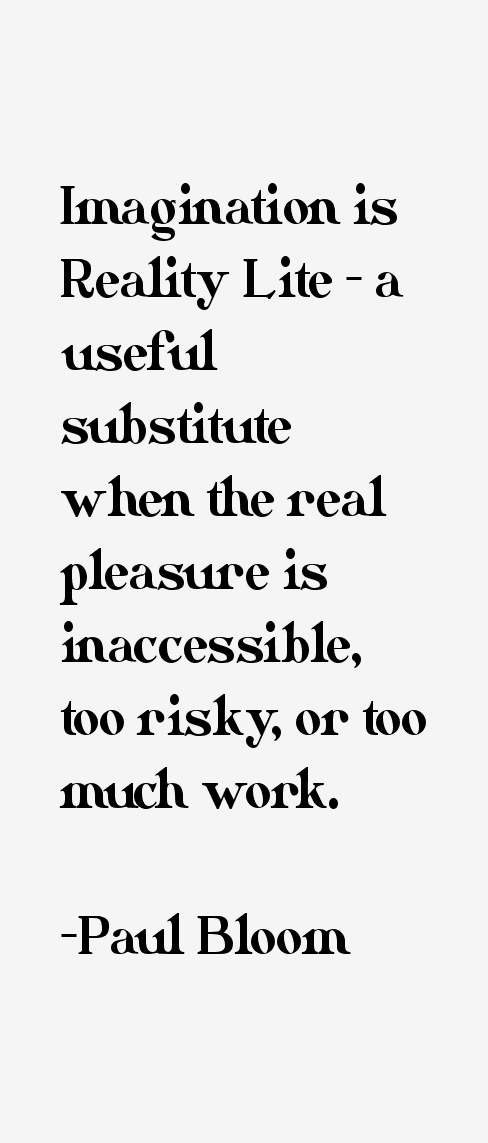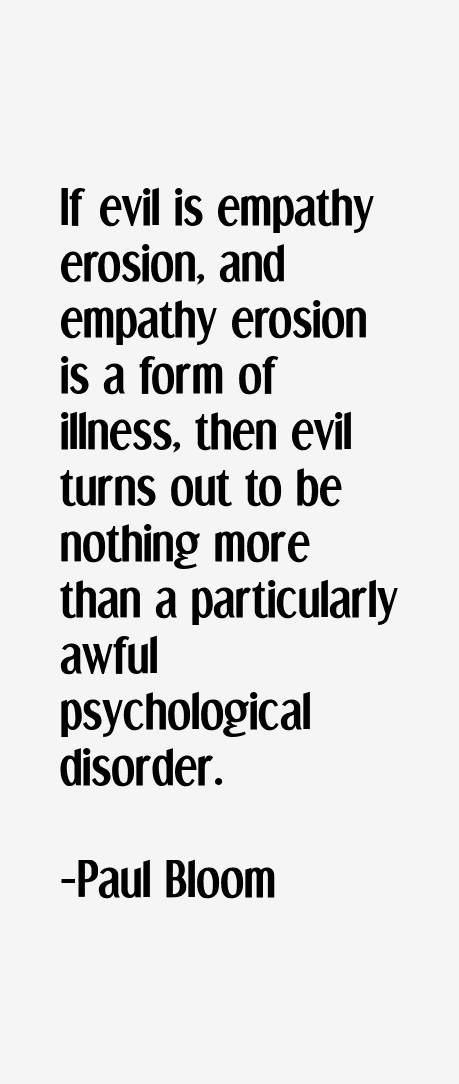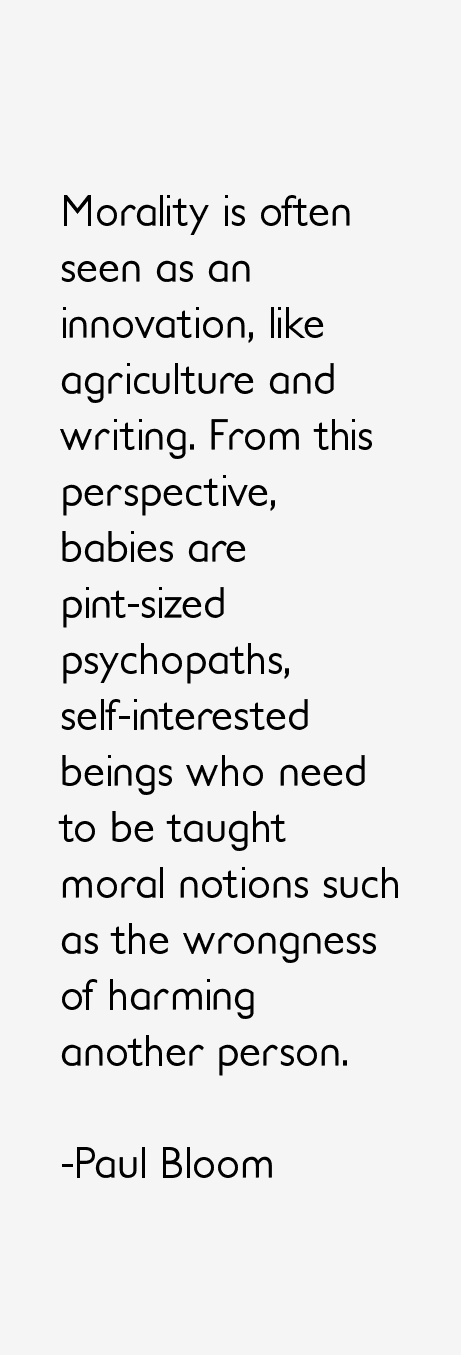Paul Bloom Quotes & Sayings (Page 4)
Paul Bloom quotes and sayings page 4 (psychologist). Here's quote # 31 through 40 out of the 56 we have.

“Imagination is Reality Lite - a useful substitute when the real pleasure is inaccessible, too risky, or too much work.”

“Imagination tends to be truly useful if accompanied by the power of mental control - if the worlds in one's head can be purposefully manipulated and distinguished from the real one outside it.”
“Even in the most peaceful communities, an appetite for violence shows up in dreams, fantasies, sports, play, literature, movies and television. And, so long as we don't transform into angels, violence and the threat of violence - as in punishment and deterrence - is needed to rein in our worst instincts.”

“If evil is empathy erosion, and empathy erosion is a form of illness, then evil turns out to be nothing more than a particularly awful psychological disorder.”
“The enjoyment we get from something is powerfully influenced by what we think that thing really is. This is true for intellectual pleasures, such as the appreciation of paintings and stories, and it is true as well for pleasures that seem simpler and more animalistic, such as the satisfaction of hunger and lust.”
“We know that young babies, as they become capable of moving voluntarily, will share. They will share food, for instance, with their siblings and with kids that are around. They will sooth. If they see somebody else in pain, even the youngest of toddlers will try to reach out and pat the person.”
“A sympathetic parent might see the spark of consciousness in a baby's large eyes and eagerly accept the popular claim that babies are wonderful learners, but it is hard to avoid the impression that they begin as ignorant as bread loaves.”
“If our moral attitudes are entirely the result of nonrational factors, such as gut feelings and the absorption of cultural norms, they should either be stable or randomly drift over time, like skirt lengths or the widths of ties. They shouldn't show systematic change over human history. But they do.”

“Morality is often seen as an innovation, like agriculture and writing. From this perspective, babies are pint-sized psychopaths, self-interested beings who need to be taught moral notions such as the wrongness of harming another person.”
“More-radical scholars insist that an inherent clash exists between science and our long-held conceptions about consciousness and moral agency: if you accept that our brains are a myriad of smaller components, you must reject such notions as character, praise, blame, and free will.”
Paul Bloom Quotes Rating
No Ratings Yet
Leave A Comment
























